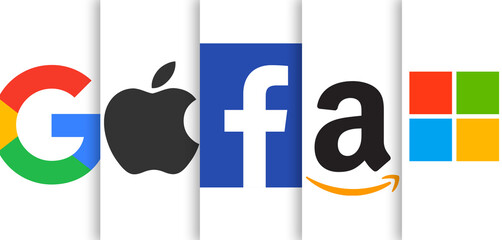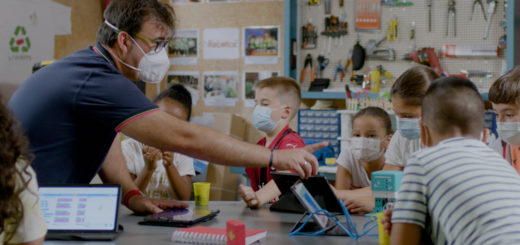Technology corporations, digital education platforms and guaranteeing children’s rights with a gender focus (edDIT)
In Catalonia, for example, in 2010 Google ceded the use of what was then known as Google Apps (now Google for Education) to the Department of Education. What did this cession entail? In principle, access to Google’s email environment, personalized for the Department, with greater storage capacity and without advertisements, and to the company’s various services. More recently, to the Suite that Google has developed for education: Google for Education.
As happened in the education administration around 2010, the service now offered by Google streamlines the management of teachers in schools. At that time, the Department of Education managed the email accounts of all its teaching and administrative staff and also promoted the creation of email accounts for secondary school students throughout its system. And it did so with few human and technical resources.
Despite the voices already warning of the potential risks of the entry of a private company into the massive management of professional tools and data (inside and outside the administration), Google’s presence in the educational administration has become more established and naturalized over the years, an inertia that has also reached primary and secondary schools.
The management of digital infrastructures and services in schools has fallen on teachers who, with great effort and without adequate expert or institutional support, have taken on the tasks of maintaining and setting the equipment that arrived at their centers, and training and guiding the rest of the teachers. Given this complex scenario, it is not surprising that a service such as Google Classroom has been well received. This digital educational platform offers a set of features that simplify many of the tasks of ICT coordination. On the one hand, it is independent of the school’s digital infrastructure. Thus, whatever equipment is available, the platform can be used through the web browser. This feature makes it possible, among other things, to alleviate the constant need for equipment upgrades required by a system based on, for example, Windows. On the other hand, the Google Suite services provide for various possibilities in the setting of the school’s domain and e-mail accounts. For example, a school can decide that the e-mail that is activated for its students can only receive and send e-mails to other users in the same domain (and not to addresses outside the school). This option is useful to control the communication environment of the students, as well as to prevent them from subscribing to other services with the school email address.
Despite the reluctance shown by some families and local schools, most are unaware of the for-profit objectives and of the way these corporations operate. In this context, families are forced to sign the consent for use and data privacy required by these platforms to ensure that their children are not excluded from an environment that is becoming increasingly relevant in the educational process and for which alternatives are still very limited.
In digital legal terms there are advances such as the right to the protection of personal information in European regulations, and the imposition of sanctions for violations in the EU’s General Data Protection Regulation, but they are far from sufficient. Yet, despite the obligation of governments to protect their population from these abuses, Amnesty International reports that these companies have been left to “virtually self-regulate”.

UNICEF demonstrates that children are more sensitive to digital marketing techniques, more likely to become consumers, with the risk of increasing their likelihood of becoming dependent on these technologies and thus more manipulable. Children are therefore much more vulnerable to ‘surveillance capitalism’, as girls and boys in the digital world are exposed to “infringement of privacy rights, protection and personal information and reputation”. This is in addition to the reproduction of gender inequalities and the intersectionalities of search engines and apps associated with these corporations. In particular, girls and boys who use them receive advertisements or see how sexist and racist roles are reproduced in search engines.
This phenomenon also affects their right to education, as the public system is commodified and the public administration loses control of the pedagogical methodology and the educational content on these digital platforms. Evidence shows that this dependence on transnationals is detrimental to pedagogical and digital sovereignty at the global level, allowing these corporations to develop their commercial objectives in an educational and public space, and to impose their ideologies, for example through the increased use of social networks linked to “gamification” in education, where technological holdings link their other platforms and digital resources.
All these concerns, together with the need to extend the understanding of the phenomenon to the rest of the public, have led to the implementation of the edDIT project, “Technological corporations, digital educational platforms and guaranteeing children’s rights with a gender focus”. This is an initiative coordinated by the Esbrina Research Group of the University of Barcelona and aFFaC (Associacions Federades de Famílies d’Alumnes de Catalunya). The project aims to explore and analyze the policies, concerns and practices of use of these digital platforms in public schools that provide compulsory education in Catalonia. Based on this exploration and analysis, the project will investigate the potential effect of these transformations on children’s rights, especially those of girls and young women.
Ultimately, the aim is to promote a greater understanding by the educational community of the possibilities they offer, but also of the limits involved in incorporating corporate digital platforms in schools, especially in those under public management. Our research work in Catalan primary and secondary public schools is showing us an asymmetrical assessment in this regard. And it worries us, because what is evident is that, with a hesitant and passive educational system with the BigTech, and beyond the enormous efforts of teachers and students to build a meaningful digital educational world: (1) the fundamental rights of children and adolescents can be put at risk, and (2) the critical potential of citizens is being limited.

Authors
Pablo Rivera Vargas
Lecturer in the Department of Didactics and Organisation at the University of Barcelona. Member of the Esbrina research group, https://esbrina.eu/es/inicio/ and the Indaga-t teaching innovation group, http://www.ub.edu/indagat/el-grup/ Member of the REUNI+D network.
Judith Jacovkis
Lecturer in the Department of Didactics and Organisation at the University of Barcelona. Member of the Esbrina research group, https://esbrina.eu/es/inicio/ and the Indaga-t teaching innovation group, http://www.ub.edu/indagat/el-grup/ Member of the REUNI+D network.






